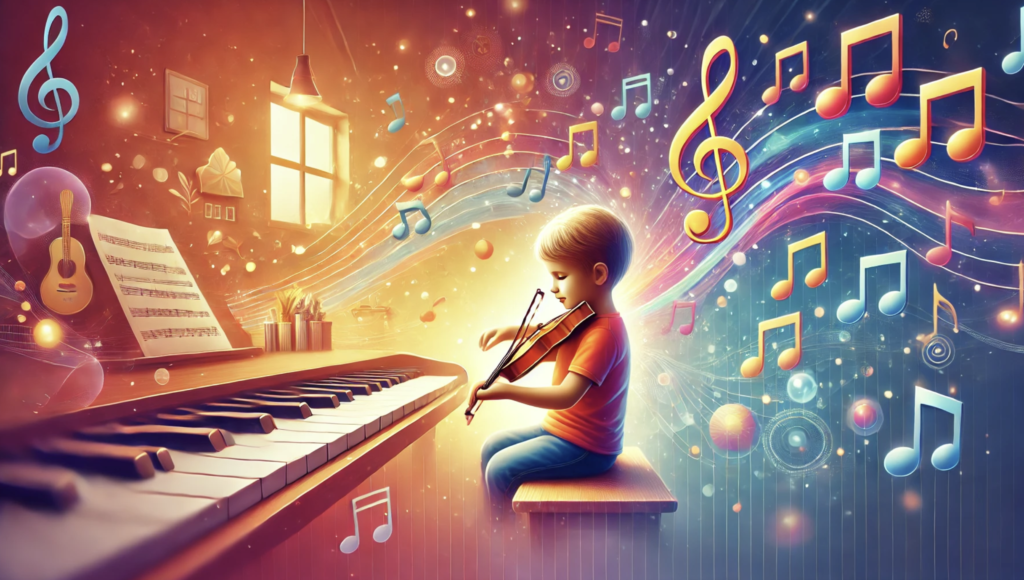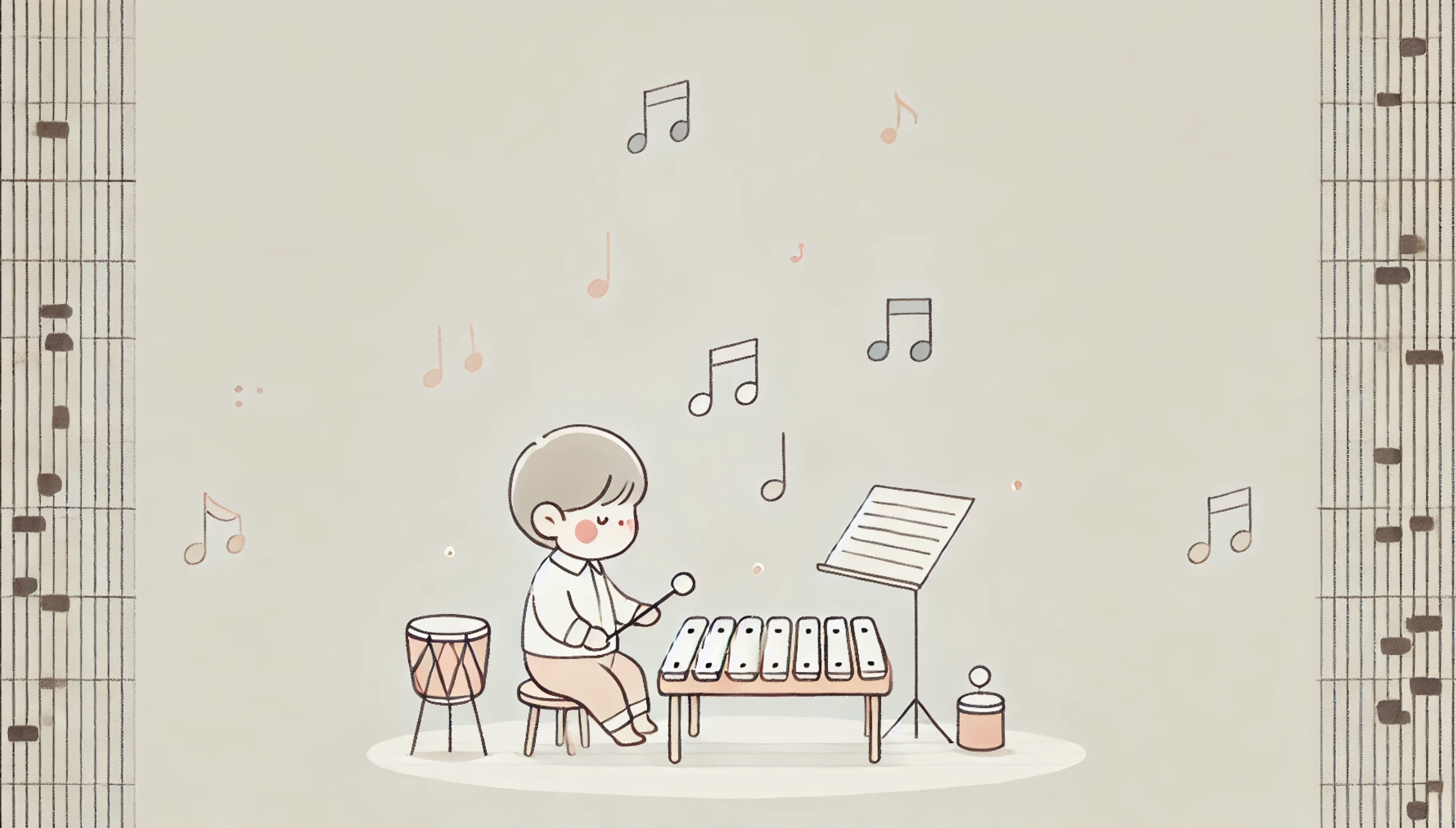Early child development plays a crucial role in shaping an individual’s future learning, behavior, and overall well-being. Among the various activities that contribute to a child’s growth, learning music at an early age stands out as one of the most impactful. Research has shown that exposure to music in the early years enhances cognitive abilities, improves social and emotional skills, supports language development, strengthens physical coordination, and fosters creativity. By integrating music into early child development experiences, we can provide children with a strong foundation that will benefit them throughout their lives.
Brain Development and Music
The brain undergoes rapid development in Early child development , forming neural connections that influence cognitive, emotional, and physical abilities. Learning music during this critical period stimulates various regions of the brain, including those responsible for processing sounds, memory, and motor skills. Studies have shown that children who engage with music early in life develop enhanced brain plasticity, leading to improved learning potential.
Music engages both hemispheres of the brain, promoting neural connectivity and strengthening pathways that support problem-solving, critical thinking, and creativity. When children play musical instruments or sing, they activate multiple brain functions simultaneously, resulting in better coordination between auditory, visual, and motor skills.
Social and Emotional Skills Through Music
Music plays a vital role in developing social and emotional skills in young children. Participating in group music activities, such as singing in a choir or playing in an ensemble, teaches children cooperation, teamwork, and communication. These skills form the foundation for healthy social interactions and emotional intelligence throughout life.
Music also fosters emotional expression. Children often struggle to articulate their feelings, but music provides a nonverbal outlet for emotions. Whether through playing an instrument, singing, or dancing, children can convey joy, sadness, excitement, or frustration, helping them develop emotional resilience and self-regulation.
Furthermore, exposure to different musical styles and cultures broadens children’s understanding of diversity and empathy. By listening to and playing music from various traditions, they learn to appreciate cultural differences and develop a sense of inclusivity.
Also Read: Free Guide: How Music Institutes Can Inspire Parents to Support a Music as a career for Their Child
Language and Communication Development
Music and language are closely interconnected. Learning music in early childhood enhances phonological awareness, which is essential for language development in Early child development. Singing songs, reciting rhymes, and engaging in rhythmic activities help children recognize speech patterns, syllables, and vocabulary.
Research suggests that children who receive musical training tend to have better reading and writing skills. Music strengthens auditory discrimination, allowing children to differentiate between similar sounds, a critical skill for language comprehension. Additionally, learning to play an instrument improves verbal memory and listening skills, which are essential for effective communication.
Moreover, songs and melodies often introduce new words and concepts in a fun and engaging manner. This not only expands a child’s vocabulary but also reinforces their ability to remember and recall information.

Physical Development and Motor Skills
Playing musical instruments and engaging in rhythmic activities significantly contribute to a child’s physical development. Fine motor skills are enhanced when children play instruments such as the piano, violin, or guitar, as these require precise hand movements and coordination. Similarly, drumming or clapping exercises help develop gross motor skills, rhythm, and timing.
Dancing to music further improves physical coordination, balance, and flexibility. Movement-based musical activities encourage children to explore their physical capabilities while also enhancing spatial awareness and body control.
Cognitive Skills and Problem-Solving
Early music education has been linked to improved cognitive abilities, including memory, attention span, and problem-solving skills. Learning to play an instrument involves reading musical notation, recognizing patterns, and coordinating different actions simultaneously. These activities enhance executive functioning skills, which are crucial for academic success and everyday decision-making.
Music also stimulates creativity and innovation. When children improvise melodies, compose their own songs, or experiment with different sounds, they develop a sense of curiosity and imagination. These creative experiences foster a mindset that encourages exploration and adaptability.
Music and School Readiness
Children who are exposed to music from an early age tend to perform better academically. Music education enhances numeracy skills, as it involves counting beats, recognizing patterns, and understanding mathematical concepts such as fractions and sequences. Additionally, the discipline required to practice and master a musical instrument instills a strong work ethic and perseverance.
Furthermore, structured music programs prepare children for formal schooling by improving their listening skills, concentration, and ability to follow instructions. These foundational skills contribute to a smoother transition into school and a greater capacity for academic achievement.
Long-Term Benefits of Early Music Education in
Early child development
The benefits of early music education extend beyond childhood and have long-term implications for overall well-being. Studies indicate that individuals with a musical background exhibit higher levels of intelligence, better mental health, and greater emotional stability. Music has been shown to reduce stress and anxiety, enhance memory retention, and even delay cognitive decline in older age.
Additionally, children who engage with music often develop strong self-discipline, confidence, and a sense of achievement. The ability to perform in front of an audience builds resilience and self-assurance, skills that are valuable in both personal and professional life.
How to Integrate Music into Early Child Development
Parents, caregivers, and educators can incorporate music into a child’s daily routine in various ways:
- Singing Together: Encourage children to sing along to nursery rhymes, lullabies, and favorite songs.
- Playing Instruments: Provide access to simple instruments like tambourines, xylophones, or recorders.
- Listening to Music: Expose children to a wide range of musical genres and cultural sounds.
- Movement Activities: Engage in dance, clapping, or rhythm games to enhance coordination.
- Music Classes: Enroll children in structured music programs or private lessons.
- Creative Expression: Allow children to create their own songs and experiment with sounds.
Learning music in early childhood is a powerful tool for holistic Early child development. It enhances cognitive, social, emotional, and physical skills while fostering creativity and academic readiness. By prioritizing music education from a young age, we can equip children with the skills and confidence needed to thrive in all aspects of life. Investing in early child development through music education is not just about producing musicians; it is about nurturing well-rounded individuals who are prepared for lifelong success.


